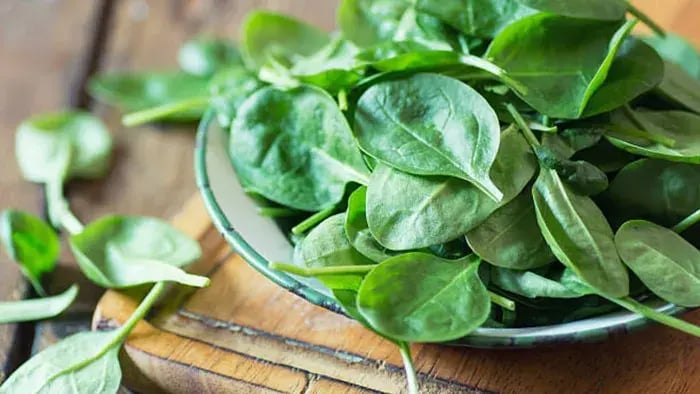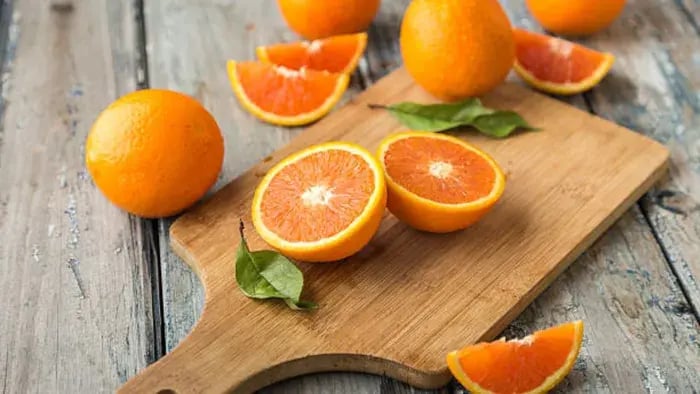- Spinach (Palak)
- Amaranth Leaves (Chaulai)
- Drumstick (Moringa) Leaves
- Okra (Bhindi)
- Sweet Potatoes (Shakarkandi)
- Guava (Amrood)
- Custard Apple (Sitaphal)
- Figs (Anjeer)
- Oranges (Santra)
Introduction

Strong bones develop over time with the right mix of nutrients and habits. According to the National Institutes of Health, calcium is the mineral that forms the foundation of bone health at every stage of life. While milk and dairy are the first foods that come to mind for calcium, fruits and vegetables are a natural and refreshing way to meet daily needs. For growing kids, they support height and strength; for teens, they help during growth spurts; and for adults, they keep bones strong and joints flexible.
Indian kitchens and markets are full of options that make calcium-rich eating easy. From everyday vegetables like spinach and beans to fruits like guava and custard apple, each has its own calcium content along with bonus nutrients like Vitamin C, potassium, and fiber. These combinations not only improve calcium absorption but also overall well-being.
Adding these fruits and vegetables to your daily meals doesn’t require complicated recipes; many can be had raw, in salads, blended into juices, or lightly cooked. By choosing these natural sources, you give your body more than just stronger bones; you also add colour, variety, and freshness to your diet.
9 Everyday Calcium-Rich Fruits and Vegetables That Strengthen Bones
Strong bones are the foundation of a healthy body, and the best way to support them is through a diet rich in calcium. While milk and dairy often take the spotlight, many fruits and vegetables naturally provide this essential mineral along with other nutrients that help your body absorb and use it effectively. For children, calcium supports growth; for teens, it strengthens bones during rapid changes; and for adults, it helps maintain resilience and mobility over time.
Spinach (Palak)

As per a study published in Ann N Y Acad Sci. 2022, a single serving of spinach can provide around 100–150 mg of calcium, along with Vitamin K, which further supports bone strength. Adding spinach to parathas, curries, or smoothies makes it easy to include in daily meals. Regular consumption helps maintain strong bones while also improving blood health and energy.
Amaranth Leaves (Chaulai)
According to the Dietary Guidelines for Indians, amaranth leaves contain about 215 mg of calcium per 100 grams, making them a powerful choice for bone health. They also add protein, iron, and Vitamin C, which aid absorption. You can cook them into dals, stir-fries, or rotis, making them both versatile and nutrient-dense.
Drumstick (Moringa) Leaves
As per a study published in Antioxidants (Basel). In 2022, drumstick leaves are extremely rich in calcium, offering over 400 mg per 100 grams. They also provide antioxidants and iron, supporting both bone health and immunity. Traditionally used in South Indian recipes like sambar, moringa can also be dried into powder and added to soups or smoothies.
Okra (Bhindi)
A study published in Molecules. 2021, shows that it has about 82 mg of calcium per 100 grams, okra supports strong bones while improving digestion. It’s commonly cooked in dry curries or stews and pairs well with chapati or rice. Including okra regularly provides both taste and long-term health benefits.
Sweet Potatoes (Shakarkandi)
According to the National Institutes of Health, they provide around 30 mg of calcium per 100 grams along with beta-carotene, which supports vision and immunity. Roasted, boiled, or added to curries, sweet potatoes are a comforting, calcium-supporting food that children especially enjoy for their natural sweetness.
Guava (Amrood)
A study published in Foods. 2021, shows that guava provides about 18–20 mg of calcium per 100 grams. Its high Vitamin C content plays a major role in helping your body use calcium effectively. Eating guava raw, in salads, or as juice strengthens immunity while supporting bone growth.
Custard Apple (Sitaphal)
According to a study published in Biomolecules. In 2021, custard apple contains about 30 mg of calcium per 100 grams, along with magnesium and potassium. These minerals work together to support bone metabolism and maintain balance in the body. It’s a tasty fruit that can be enjoyed fresh or in milkshakes.
Figs (Anjeer)
A study conducted by Nutrients. 2023, they are also rich in fiber and antioxidants, which support digestion and heart health. Eating figs soaked overnight or added to porridge is especially beneficial for growing children and teens.
Oranges (Santra)

According to the WHO, each orange offers about 40–50 mg of calcium, and its Vitamin C content ensures better absorption of the mineral. Oranges can be eaten as a fruit, juiced fresh, or added to salads, making them an easy way to refresh and strengthen bones at the same time.
Conclusion
Building stronger bones doesn’t have to depend only on dairy products. Every day fruits and vegetables like spinach, guava, figs, and custard apple bring both calcium and complementary nutrients that support growth and resilience. Including them in daily meals gives you variety, flavor, and long-term health benefits. Whether you are packing a lunchbox, preparing dinner, or planning snacks, these foods help strengthen bones naturally, one plate at a time.
Her love for storytelling began with reading her grandfather’s speeches, where Tarishi saw the power of words in creating lasting memories. Combining her passions for food and writing, she has turned her life into a fulfilling path of sharing stories that celebrate flavours and how food brings communities together.
The views expressed are that of the expert alone.
The information provided in this content is for informational purposes only and should not be considered a substitute for professional medical advice, diagnosis, or treatment. Always seek the advice of your physician or another qualified healthcare provider before making any significant changes to your diet, exercise, or medication routines.
References
https://iris.who.int/bitstream/handle/10665/42716/9241546123.pdf
https://pmc.ncbi.nlm.nih.gov/articles/PMC10255635/
https://pmc.ncbi.nlm.nih.gov/articles/PMC8143160/
https://pmc.ncbi.nlm.nih.gov/articles/PMC8066327/
https://ods.od.nih.gov/factsheets/VitaminA-HealthProfessional/
https://pmc.ncbi.nlm.nih.gov/articles/PMC7865958/
https://pmc.ncbi.nlm.nih.gov/articles/PMC8869219/
https://www.nin.res.in/downloads/DietaryGuidelinesforNINwebsite.pdf
https://pmc.ncbi.nlm.nih.gov/articles/PMC9306636/
https://ods.od.nih.gov/factsheets/Calcium-HealthProfessional/
















